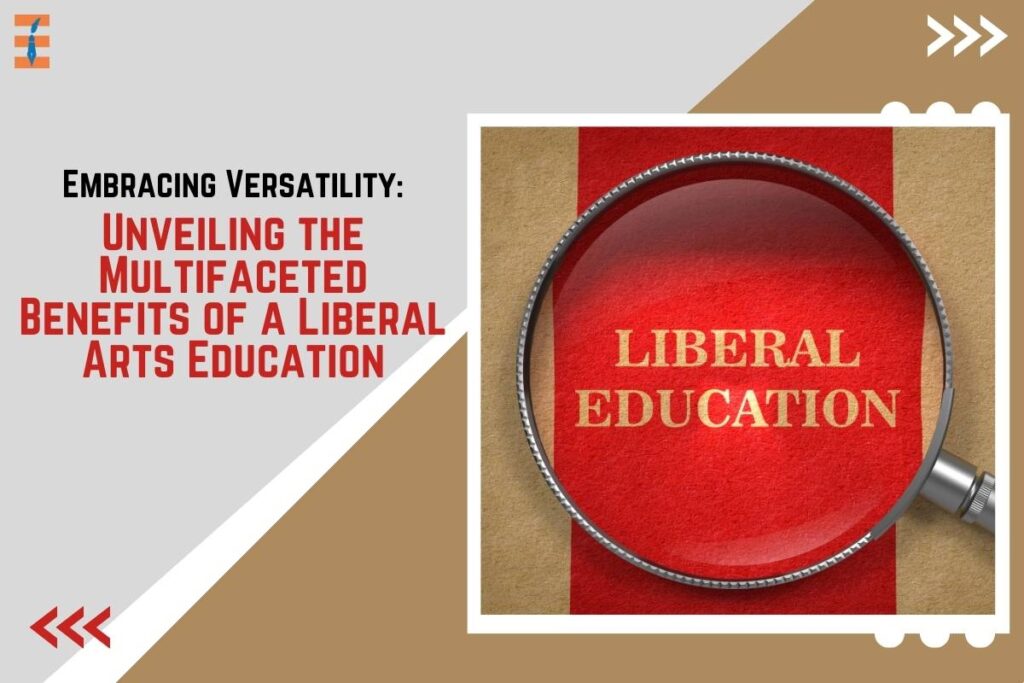In the ever-evolving landscape of education, the pendulum often swings between specialized, career-oriented programs and a more holistic, liberal arts approach. While the former promises targeted skill acquisition, the latter champions a broader, well-rounded education. In this article, we delve into the manifold benefits of a liberal arts education, exploring how it equips individuals with the versatility needed to thrive in an increasingly complex and dynamic world.
The following are the benefits of a liberal arts education:
1. Critical Thinking and Analytical Skills
At the heart of a liberal arts education lies a commitment to cultivating critical thinking and analytical skills. Students are encouraged to explore diverse subjects, from philosophy to literature, which fosters an intellectual agility that transcends disciplinary boundaries. This ability to analyze information critically and synthesize ideas is a cornerstone of success in any field, empowering graduates to approach challenges with a multifaceted perspective.
2. Breadth of Knowledge

A liberal arts education exposes students to a wide range of disciplines, ensuring a well-rounded understanding of the world one of the benefits of a liberal arts education. This breadth of knowledge not only enriches personal development but also equips individuals to adapt to various professional environments. A graduate with a foundation in literature, history, science, and the arts possesses a nuanced worldview that proves invaluable in navigating the complexities of today’s interconnected society.
3. Effective Communication Skills
In an era dominated by rapid technological advancements, effective communication remains a timeless and crucial skill. Liberal arts programs emphasize verbal and written communication, honing students’ abilities to express complex ideas with clarity and precision which is one of the benefits of a liberal arts education. This emphasis on communication serves graduates well in various professional settings, allowing them to articulate their thoughts persuasively and engage in meaningful dialogue.
4. Adaptability and Lifelong Learning
The job market is dynamic, and career paths are no longer linear. A liberal arts education instills adaptability by teaching students how to learn rather than simply what to learn. The ability to embrace new information and skills throughout one’s career becomes a cornerstone of success. Graduates of liberal arts programs are primed for a lifetime of learning, ready to navigate the evolving demands of the professional landscape.
5. Cultural Competence and Global Awareness

In an interconnected world, cultural competence and global awareness are paramount. Liberal arts education encourages students to explore different cultures, histories, and perspectives, fostering a deep understanding of the diversity that defines our global community which is one of the benefits of a liberal arts education. This cultural fluency is not only vital for effective communication but also for building bridges and fostering collaboration in an increasingly globalized workforce.
6. Ethical Reasoning and Social Responsibility
Beyond technical proficiency, employers increasingly seek individuals with strong ethical reasoning and a sense of social responsibility. Liberal arts programs often incorporate ethics and social sciences, encouraging students to reflect on the ethical implications of their decisions and actions. Graduates emerge with a heightened awareness of their role in society, equipped to make informed and ethical choices in both their personal and professional lives.
7. Problem-Solving Abilities

The interdisciplinary nature of liberal arts education cultivates problem-solving abilities that transcend specific fields. Graduates are adept at approaching challenges creatively, drawing upon a diverse set of skills and perspectives to devise innovative solutions. This problem-solving mindset is invaluable in an era where complex issues demand holistic and adaptable approaches.
8. Entrepreneurial Mindset
Entrepreneurship is not confined to business ventures; it extends to individuals who can identify opportunities and navigate uncertainties. A liberal arts education fosters an entrepreneurial mindset by encouraging students to think critically, take initiative, and adapt to changing circumstances. These qualities are foundational for success in any endeavor, whether it be launching a startup or excelling within an established organization.
Conclusion
In a world marked by constant change and uncertainty, the benefits of a liberal arts education are more relevant than ever. Beyond the acquisition of specific skills, a liberal arts education equips individuals with the intellectual dexterity, cultural competence, and ethical grounding necessary to thrive in diverse professional landscapes. As we navigate the complexities of the 21st century, embracing the versatility bestowed by a liberal arts education may well be the key to unlocking a future defined by innovation, adaptability, and meaningful contributions to society.
Read More: 4 Trends That Will Shape The Future Of Higher Education










